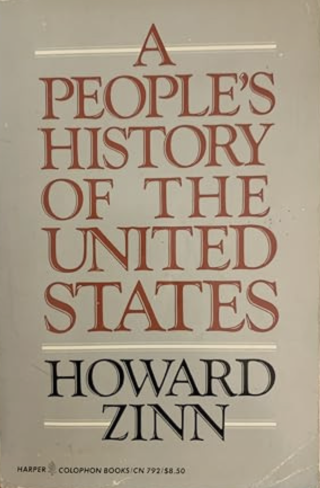Like Zinn, Lepore has written a soup-to-nuts history of the country. But unlike Zinn, she doesn’t regard it as an us-versus-them story. Instead, she likens the nation to a ship that is barely still afloat. As liberalism’s enemies pull up the planking to light “bonfires of rage,” patriots must mend the listing vessel before it tilts into the “doom-black sea.” Her history is itself intended as an act of repair. In the face of the forces rending the United States, Lepore depicts it as a unitary society with a distinct and laudable set of civic ideals, one whose past can be intelligibly told as a single story.
Single stories are unfashionable at present. Historians today are relentless pluralizers, far more inclined to write the histories of modernities than the history of modernity. They have good reason(s). The more the field grows—new research, new perspectives—the harder it becomes for writers to agree on a central narrative. Two tendencies in particular have turned US history into a forest of tangled branches. The first is diversification: As their ranks have grown more heterogeneous, historians have consciously sought to offer accounts that aren’t narrated solely from the implicit vantage of well-off white men. The second is globalization: The acceleration of flows of ideas, people, and things across borders in recent decades has called into question what “the United States” even means and whether its history can be hived off and told apart from that of the rest of the world.
With regard to history’s diversification, Lepore is warmly receptive. Having written a biography of Jane Franklin, Benjamin Franklin’s lesser-known sister, Lepore is practiced at opening up the past so that it is not just the story of presidents and generals. On this score, These Truths excels. The American Revolution, for Lepore, stars not only George Washington but also Harry Washington, who toiled in slavery on the founder’s plantation. Harry Washington escaped twice, fought with the British in the Revolution (while “wearing a white sash stitched with the motto ‘Liberty to Slaves’”), and sailed for Sierra Leone, where he led his own revolt against the colonial government. Similarly, Lepore’s version of the civil rights movement features, alongside Martin Luther King Jr., Pauli Murray, the brilliant intellectual and tactician whose contributions were likely kept quiet because Murray, born with female genitalia, identified as male.
One of the great achievements of These Truths, in fact, is how tightly it weaves the Harry Washingtons and Pauli Murrays into its tapestry. Lepore includes them not dutifully but eagerly and to great effect. And by taking both Harry Washington and George Washington seriously at the same time, she compellingly demonstrates that writing an inclusive history needn’t require splitting the past into separate histories “divided by race, sex, or class,” as Lepore contends many of her colleagues do.
The second change that has fractured national narratives—globalization—is a more complicated story. Living with porous borders has led historians to recognize that the past isn’t served up neatly in national containers. Borders, they argue, have never been as fixed and straightforward as maps suggest—and events have a way of spilling over them anyway. It’s for this reason that historians increasingly study empires, borderlands, diasporas, oceans, trade networks, climatic zones, and other transnational entities rather than countries, as they used to all do.
This is where Lepore draws the line: “This world is a world of nations,” she insists. These Truths is thus a resolutely national history, concerned with what takes place inside US borders, not beyond them. Lepore recognizes diversity within those boundary lines—the nation contains many kinds and colors—but she nevertheless consistently interprets that diversity as part of a shared national heritage.


